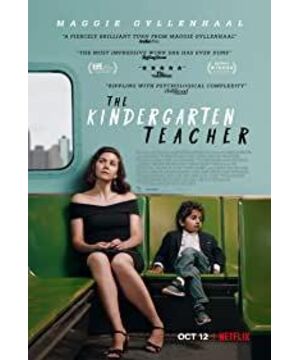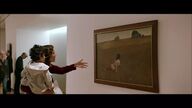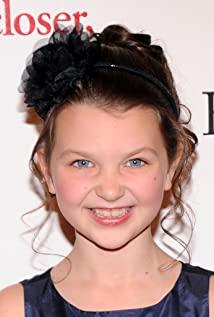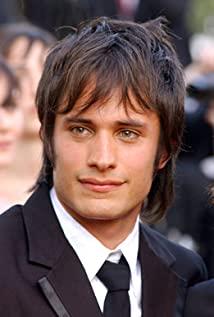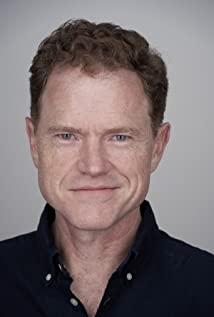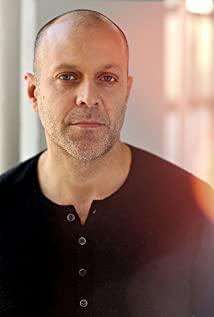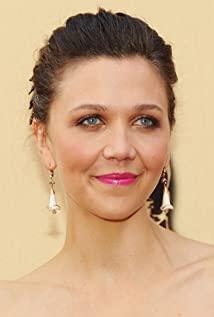The title is absolute, but the kindergarten teacher's movie seems to be talking about poetry and education. In fact, it is more of a woman's mid-life crisis. When she was dealing with this crisis, she wanted to vent and escape, and finally planned A crazy trip, like she lit a fire with her own hands, burned down the prison that bound her, and burned herself.
First of all, it has nothing to do with education. After watching the film, many people will think that this is an extreme experiment. In order to cultivate Jimmy's poetic talent, Lisa took special care of him, recorded his poetry, explained his perspective, and communicated with his parents. Praises his talent and wants them to take it seriously, takes Jimmy to poetry readings, and even plans what might be called a kidnapping at the end. Lisa is like a finder of genius Jimmy, and a desire to be his trainer.
Can this series of behaviors be called education? I don't agree. The simplest education is to spread knowledge, and the general purpose of education is to cultivate and shape a person's sound cognition and thinking. The educational object of the film is Jimmy, who can be seen as having a talent for poetry, but I don't think Lisa's behavior about his talent for poetry can be called education.
First of all, looking at the whole film, Lisa doesn't give Jimmy any knowledge of poetry, she doesn't teach Jimmy in poetry lessons, the theory about poetry or some good poetry. To put it bluntly, her role is far less than that of the uncle who took Jimmy to read poetry in the newspaper. The only thing that has something to do with poetry education is the perspective of toilets, but this broad concept can even be classified as cognitive. Poetry requires different perspectives, so doesn’t ordinary speech and description need different perspectives?
And Lisa, as Jimmy's teacher, is also a student of poetry courses, but whether she is the initiator or recipient of poetry education, she has failed to fulfill her role. At the beginning of the film, she and her husband discuss the poems she wrote with her husband. The poem about the little flowers in the pond is indeed very mediocre, but this is just the beginning. It is easy to deviate from the simple description of things or the accumulation of images when writing poems at first.
This time should be continued reading accumulation and careful observation, but what about Lisa? In the film, did she seriously study a poetry collection after poetry class? No, she repeatedly plagiarized Jimmy's work as her own homework after discovering his talent. After her teacher learned the truth, she told Lisa that all artists would learn from each other, but what she did was completely different. Lisa insisted that it was for Jimmy. The teacher pointedly commented that Lisa was extracting a child.
When one party is using or even extracting the value of the other party's achievements, can you regard the extractor's encouragement and support for the passive party as an educational behavior? The answer is obvious. I don't deny Lisa's education process for Jimmy as a kindergarten teacher. She went to Jimmy's uncle and father for education, but I can't agree that she educated Jimmy in poetry. There is no output of knowledge and value, no guidance without utilitarianism, and some are plagiarized and extracted without knowing it. It's not education, it's just to satisfy one's own selfish desires. So Lisa will never be the Anna in Jimmy's poem, even if she hopes to be.
The film, of course, has nothing to do with poetry. Poetry is just a symbol Lisa uses to escape and fight the mundane life. If not poetry, it will be painting, illustration and other forms. "I just want more curiosity, energy, and intelligence to exist in this house" is Lisa's pursuit. And her daughter's angry complaints were a bit too sharp but also very vivid. She described Lisa as acting like a cultural ambassador of the United Nations. To put it mildly, Lisa is exploring and satisfying her own spiritual pursuits; in fact, she is dissatisfied with her ordinary daily life, and she uses poetry to express her higher pursuits and a sense of superiority that is out of the ordinary.
That's why she values Jimmy's talent so much. Because she found that her poetry was also very ordinary, she was lost and more unwilling. Jimmy's poems can make her stand out in the classroom, she is a bit desperate and gets the brilliance of genius. She enjoys the appreciation and praise from her classmates and teachers, and she enjoys being valued, admired, and admired. This is markedly different from the feedback she gets from ignorantly obedient kindergarteners and rebellious independent children.
It can even be described in a vulgar way, that is, Lisa's talent is not worthy of her ambition. Lisa actually has a lot, a steady job, understands her supportive husband, rebellious but purposeful children, and even I think it's a bit too much to describe her situation as a midlife crisis. The most deadly thing is that Lisa is not satisfied. From the various encounters after discovering Jimmy's talent to the final imprisonment, Lisa is actually to blame. She imposes her unfulfilled dream of poetry on little Jimmy, achieving brief self-satisfaction in each of Jimmy's gifted poems.
The best expression of Lisa's obsession with poetry is her sexuality twice. For the first time, she interrupted her intimacy with her husband to answer Jimmy's call. The husband looked surprised and disappointed behind her. This means that poetry is a priority for Lisa over basic physical needs, and Jimmy's status is higher than her family. This performance isn't entirely incredible, but it's also a red flag. The second time was when Lisa volunteered to dedicate herself to her poetry teacher. Regardless of moral and ethical errors, this sexual incident reflects Lisa's belief and submission to poetry. Because of the lofty status of poetry in her heart, and the appreciation of her teachers, she has always wanted to prove herself and gained a precious sense of recognition. So she will take the initiative to pull the teacher, this sex is like a sacrifice for her poetry, this kind of fanaticism also paved the way for her final madness.
It's really not about poetry, she's crazy about Jimmy's talent. It contains her dissatisfaction with her ordinary life, her disappointment with her rebellious children, her obsession with her university degree, and her unwillingness to her mediocre talent. Mediocrity is not scary, what is scary is not being able to accept your mediocrity. Jimmy's father said that having a normal life is also a good thing, but Lisa, who was obsessed, disagreed. She finally shouted to Jimmy: "The world will erase your talent, there is no place for you in this world, people like you. In a few years you will be like me." She was miserable, she was helpless , because she was betrayed by poetry and her dreams were shattered.
"Don't be afraid, Anna. The end of the road is far ahead, and it's already behind us." Jimmy chose to call the police, but the so-called genius returned to reality first, and his ideal was shattered halfway. Lisa asked to open the door and put on her clothes, retaining the last shreds of dignity and stubbornness for herself. The camera shows Jimmy pulling Lisa's hand, and this crazy experiment about genius, poetry, the collision of ideals and reality finally achieves a rare peace at this moment.
But when Jimmy sat in the police car alone and said I have a poem, the film was full of irony, that crazy genius supporter and poetry connoisseur was no longer beside the genius. Poetry will not favor Lisa, because she is deliberate, because she is madly selfish. But this favor for Jimmy may also end in I have a poem.
Poetry is too difficult, leaving only a mess and unfinished poems
View more about The Kindergarten Teacher reviews


